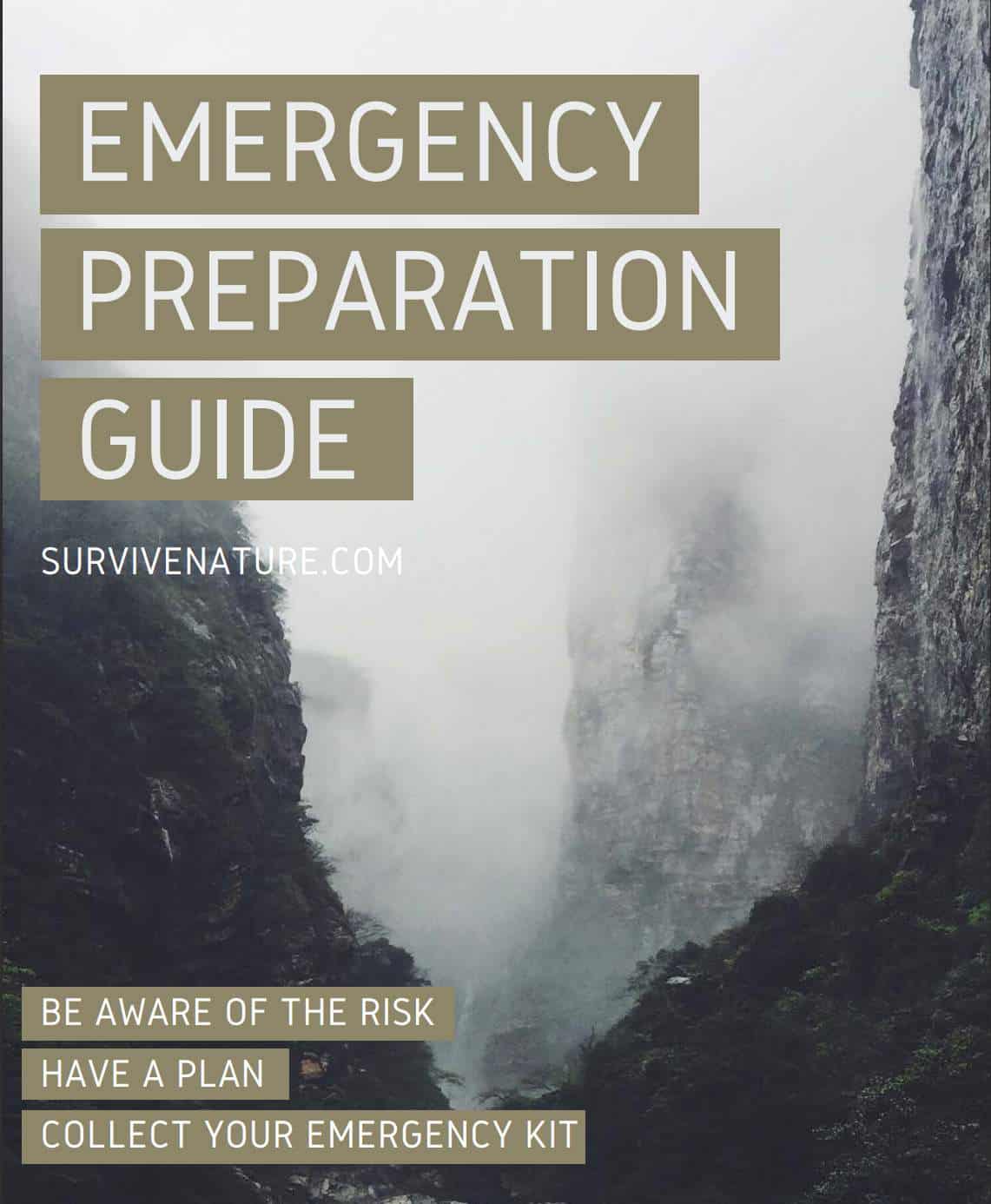If you ask yourself how to protect your privacy in 2023, this article is directly for you. A robust password isn’t sufficient for the ultimate safety on the Internet. There are hackers who can easily hack your Facebook or any other social media. They can intrude into apps, your phone, and your files on Google. Learn about the software that can protect your provacy in the following article.
This article will discuss the ways to protect privacy online by employing CyberSecurity.
Let’s talk about you, you:
- are secure and overprotective;
- make sure you never follow any questionable email links;
- don’t write out the annoying pop-up polls;
- withdraw distributing your data to some suspicious websites;
- log out of your social media when you leave the app;
- seldom go online shopping, and solely with popular and well-known stores you can rely on;
- even purchased an anti-virus security package to prevent getting viruses and spyware and so forth.
But you know what … it makes no sense, as, unfortunately, complete privacy online is a thing of the past. Why would I say something like this, would you ask. And I will answer: snap-on this Website, and you will be shocked seeing this:
Fill out your first name, last name, and the state you live in. Don’t worry. You’re not sharing any new personal information, and you’re simply trying to check what this one site already has on you. And now, check the results. Let’s see if you can recognize yourself; if you have found someone that looks like you, snap on it and see what happens.
You will see the names of several of your family members, for example, dad, mom, brothers and sisters, and so forth, as well as some close associates’ names (friends, neighbors, colleagues, etc.). It happens if you are like most people (including me). One even will find the previous places of living and their addresses.
And now, I would ask you… what do you feel? Violation? Disappointment?
Greetings from our Internet era, where even your personal information is uploaded offline to the Web. And later, I assure you, they would strive to get even more of your personal information to share it with the whole world.
To be honest, I don’t know if you have found anything surprising for ya, but I definitely dislike seeing my results. I would have never approved of it and would have never been willing to share this data. I mean, how the hell would my personal information serve as a service of someone else’s Website? This is an absolute disgrace!
And you know what strikes me even more? The fact that you, as of now, can do absolutely nothing about it: this information will forever be disclosed. I’m already late!
That’s why I have questioned myself: what’s gonna be next? The fact that they know all of my family and friends and my place of living already shocks me and leaves me completely frustrated. But later, all my actions on the Internet, my personal information, such as phone number, location history, etc., would become accessible for the whole world. I’m sure everyone would be able to watch me live on full screen for the whole Web world.
So, make sure to take it seriously if you want to protect your privacy, and you will have to get an online privacy plan.
As We Would Like To Present You To Our Website, We Are Sharing The #78 Piece Full Survivalist Guide. Snap Right There To Obtain It For Free!
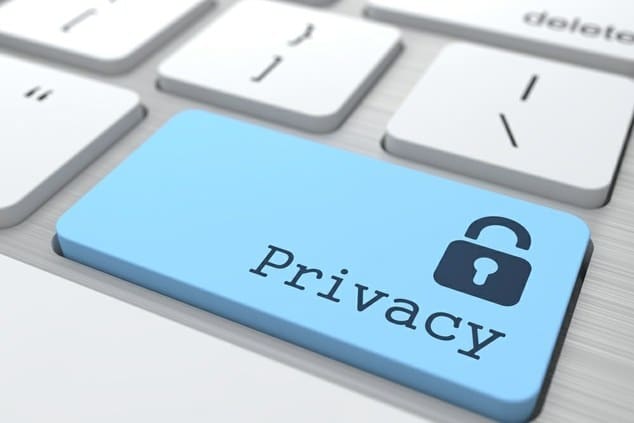
What Does the NSA and the Authorities Know About My Online Presence?
Let’s dig into it a little bit deeper. Did you ever question yourself if the government has data about the websites you’ve visited? It’s pretty easy to believe that our very-controlling authorities would like to know who’s a Republican and who’s a Democrat. Moreover, they may even utilize this personal information against you (in cases when you are not on the government side).
And how, would you ask? Well, perhaps they’ll establish that Republicans should be targeted for Internal Revenue Services charge audits. In fact, we don’t need to make a hypothetical situation out of it, as it has already happened. Do you recall the scandal about targeting and IRS that took place in 2013? I will remind you. To cut a long story short, in the late Springtime in 2013, the TIG for Tax Administration published an inspection report that confirmed that the Internal Revenue Service utilized improper criteria for identification of possible political cases, including companies that had Tea Party in their titles.”
See, I do not make this panic out of anywhere. We are rapidly progressing into the age of no privacy.
And to sum up everything and add a little bit more, every morning while we read the news, we can read about new hacks and data losses from large corporations, e.g., Yahoo, Target, Adobe, LinkedIn, Snap chat, Sony, Apple, Facebook, and sooooo forth. To be honest, this list is enormously long, and it continues to flourish every day. Snap here to check the whole list. I hope it opens your eyes. I hope now you are eager to protect your privacy.
Terrible Examples Of What Might Happen Online
First of all, I do not support or approve the site ‘Ashley Madison.’ For those who don’t know, it is a website designed for particular purposes. Married people who would like to find a partner for cheating on their beloved ones can do it on this very website. I would only like to present it as an illustration of how our online world is already dangerous.
In 2015, this Website was hacked, and roughly forty million client E-mails were published, and a huge data breach happened. And as of now, you may fill in any email address (your wife’s, your friend’s, or colleague’s) and take a look if they were ever a member of the community of such a Website (that’s actually an act of identity theft, no one should ever steal some other accounts). To my mind, if you would have found someone to be on this e-mail list, your perception of that person would change drastically and not towards the positive side of the scale, right?
However, imagine a case when some person by accident wrote a wrong email address (and it frequently happens, right?)… but this time it was your personal email address? Or imagine a case when your enemy would type in and enter the site with your email just to screw you up?
Now I would like to tell you what the authorities from the information breach investigation concluded on that website. To put it in a nutshell, they mentioned that no account on this Website requires email verification to generate a working profile. This implies that any individual can create a profile with fake (even unexisting, uhm) emails. Moreover, from time to time, users with the same names unintentionally mix up their emails, creating accounts for the incorrect email address. No privacy at all!

What Can I Do to Protect my Privacy From Hackers?
Let’s get straight to the facts: your privacy won’t be 100% secure. But it’s still manageable to preserve most of it. But NOW you should be extremely serious about this and stop doing dumb stuff. You, instead, have to start being proactive.
Below you would find comprehensive yet simple steps on how to protect your privacy.
Protect Your Personal Wi-Fi
You could start with defending your data by taking control of your personal home Wi-Fi network (as well as all of your devices). Now let me give you an example: you lock all of your doors at night time, right? You would not like to have a stranger wandering around your kitchen or making a sandwich from your products. And now, what about WiFi. Do you feel the same way about it?
Why would you permit some stranger to wander inside your personal Wi-Fi network? You should always remember that your WiFi outreaches the area outside your apartments and can go far onto the streets. Incredibly, it is estimated that roughly 80 percent of personal routers could be attacked right now. So you would better set a password on your home network unless you would like to have someone on the nearby street get access to your Wi-Fi and personal network information.
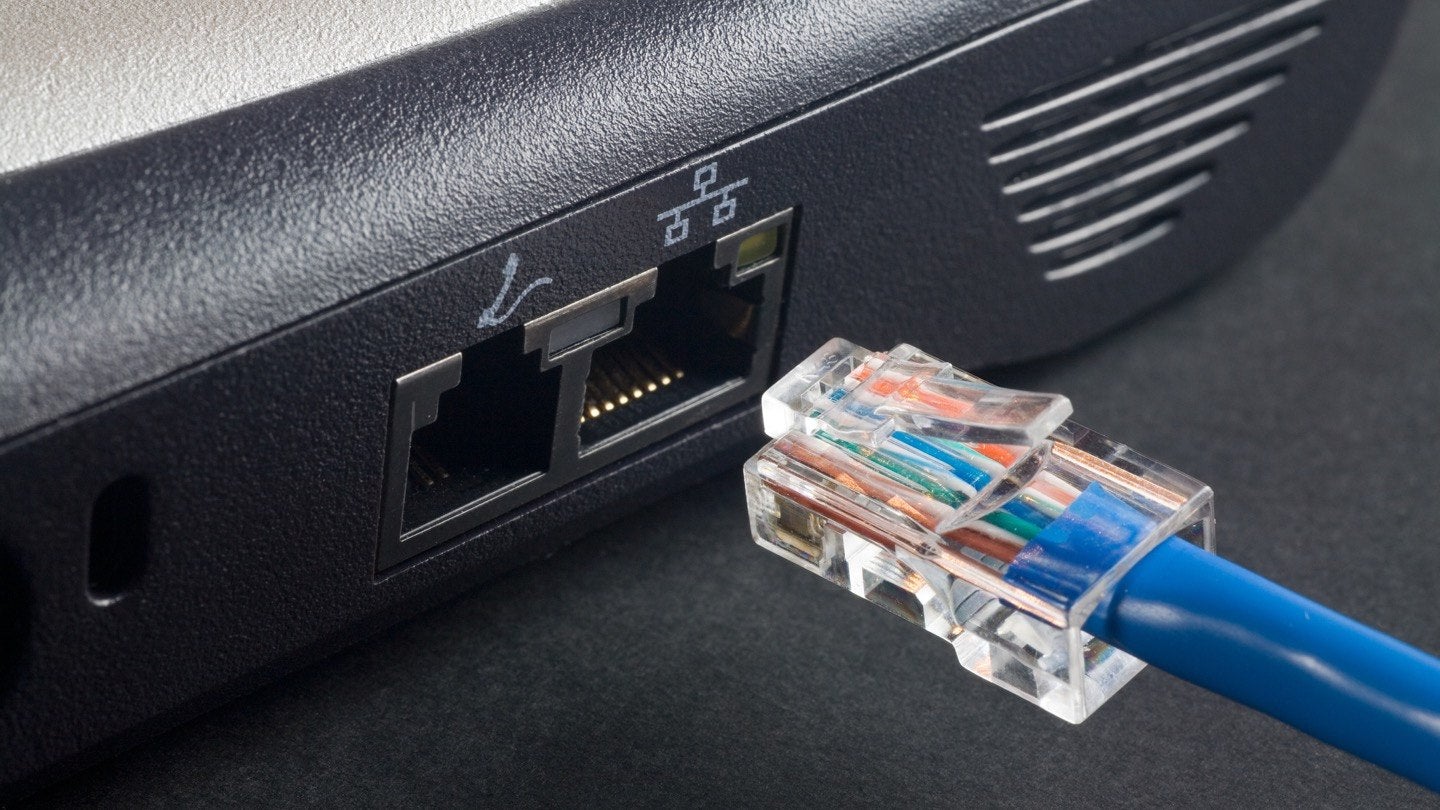
Refresh the (Privacy) Settings of Your Router
As I already mentioned, the most vulnerable area of your home’s Wi-Fi network is your router. This is due to several reasons, as most of the people don’t stress over:
- making a new password;
- changing the SSID;
- allowing encryption;
- updating the firmware on the router devices.
1) Take An Ethernet Cable for the Internet
The first thing to achieving these significant privacy enhancements is to obtain an Ethernet cable. Yes, Ethernet. I know it’s not really modern, but it’s the most protected way to refresh your router’s firmware (we will discuss this a little bit later). Make sure to have a great connection when updating the firmware, as this may result in your router turning into a plastic box. For example, let’s consider a question from some user on the Netgear forum “Can I Renew The Firmware Having No Ethernet Cable On ThePC?”
And here is the answer for this inquiry: this is not justified as you can’t really guess when you will lose the Wi-Fi connection while upgrading is in motion. You might simply break the router, so to be safe – buy an Ethernet flashcard for your PC.
The recommendation was taken from the following site. In other words, you don’t want your router to get demolished and useless.
2) Log In To Your Router
So when you get ready with an Ethernet cable, connect it from the PC to the router. Log in to the server of the router. Actually, for most devices, one will find the internal login screen by entering the ‘192.168.1.1’ IP address in the web browser.
Nevertheless, if this didn’t work out, you will have to focus on finding your router’s address. As another way, click on the ‘www.routeripaddress.com’ and you would be able to search for the model of your router. If you want to do it manually, your router model could be found somewhere on the backside of it.
3) Check Your Username and Password
You will have to change your password and login username once you’ve gained entree to your router. My biggest advice is to change the default setting for these two instantly. Every hacker and basically anyone who knows something about WiFi connection perfectly knows that the regular WiFi router names are admin/admin for username and password. You are simply asking for a hacker to attack you if you don’t change the default privacy settings. Make a password more complicated – and it will protect you. Also, you could try applying a password manager (we will later discuss the password managers).
4) Maybe Try Hiding Your SSID
You have already named your network ‘virus spreader’ but still remain skeptical about your privacy? Just hide your network. New devices permit you to configure this setting. Just turn the router on, and the name of your WiFi won’t be seen in the list of available devices. Make sure to connect all of your personal devices to the network in advance, as connecting new devices (for example, TVs, mobile devices) to a WiFi network that won’t show up in the search list could be really troublesome.
There are two simple steps to solve this problem:
- Step 1: fill out the SSID name manually when you are setting up the device (since you won’t see the name in the list of available devices);
- Step 2: turn on the default setting and permit the SSID to be displayed; connect all devices that you need and ten again hide your SSID.
Is that a pain in the ass? Sure, but if you are eager to protect your personal privacy, that’s what’s required in today’s world. That’s life!
5) Try Changing the SSID
Afterward, you could change the SSID of your WiFi to get even more security. Before you go crazy, SSID is just an unusual acronym; SSID is also known as Service Set Identifier. To tell you the truth, it is simply your WiFi network’s name. You see exactly this name when you try to find out the WiFi networks. Basically, that’s all. My advice is to change the SSID once you get your router. You could go for a creative choice so that you would know it’s your WiFi, but no one else would recognize it.
A professional suggestion: maybe name it as something dangerous and unattractive, e.g. ‘virus spreader.’ This will prevent unfriendly strangers or your neighbors from connecting to your WiFi. I mean, who would ever want to connect to a network named ‘virus spreader’? Probably, the beloved people of yours that you share the network with would be questioned with the name of the WiFi – just tell them the reason, and everybody will believe you’re a genius.
6) Make Sure to Check the Encryption Settings
Now let’s get our hands to encryption. Another slang term, but it is important to learn about it and utilize it properly. Let’s skip the technical details, and you just have to change from WEP to WPA2-AES and disable the PIN method of utilizing WPS. You need to choose a WPA2-AES since it is the most innovative and most powerful form of encryption. Basically, that’s all you have to learn on this topic. In case you can’t turn on the WPA2-AES encryption because your devices are not modern, then it indicates that you have long-delayed new devices (PCs and routers).
As We Would Like To Present You To Our Website, We Are Sharing The #78 Piece Full Survivalist Guide. Snap Right There To Obtain It For Free!
7) Modify Your Router Privacy Settings
Some more router security suggestions: do you ever plan to modify your router privacy settings when you are not at home? I guess no. And would you like the fact that someone else remotely changes your WiFi settings? Of course not! Hence, the best thing to do is to get rid of the remote control. Find anything in the setting with the name ‘Remote …’ in it.
And when we have covered the topic of remote management, then why won’t you just turn off your wifi when you are far away from home? (e.g., on vacation). This is perfectly suitable if you do not have something like a WiFi doorbell or a NEST learning thermostat, but you could turn them off as well.
8) Update Your Firmware
Let’s now move onto the firmware: you will have to check it regularly for new updates. The safety violations happen very frequently; so, to resist those new violations, router companies systematically publish the latest firmware updates. Those new updates fix the new holes in the security questions; nonetheless, if you didn’t ever renew your firmware, then you probably do really have security holes.
Then, this has to be done regularly: one must review and update the firmware of the WiFi router according to the set inventory. This has to be done at least once a year. Usually, you will notice a ‘check for new updates’ button on the login screen. Snap right there, stick to the instructions, and update to the latest version. Sometimes such things update automatically, so pay attention to it.
9) Get a New Device or Software
Buy a new router if yours doesn’t update or is old enough; moreover, the new router might drastically improve the speed of the WiFI. As for me, I bought a new router two years ago, and you know, it was a good money investment. Before buying the new device, it was hard to stream any video content for me, and I can make Live videos in Full HD with no effort. This example is not suitable for everyone, but still, this was a HUGE problem for me. When buying anew router, focuses on getting an 802.11ac standard and definitely don’t buy the 802.11b or 802.11g as they are really slow.
As of now, you can be 100% sure of the protected privacy of your router. My congratulations!
Read our extensive survival preparation guide to be absolutely ready for anything! Our website provides a lot about various kinds of survival situations, the top-rated survival gear , as well as the essential survival skills important for any real prepper, homesteader, and survivalist!
Improving the PC Setting
When your router is safe, it’s time to zero in on such devices as PC, as well as Web privacy settings. We will begin with the most crucial thing: preserving the confidentiality and privacy of your unique passwords. You will just have to follow some simple steps to get a pretty good privacy level.
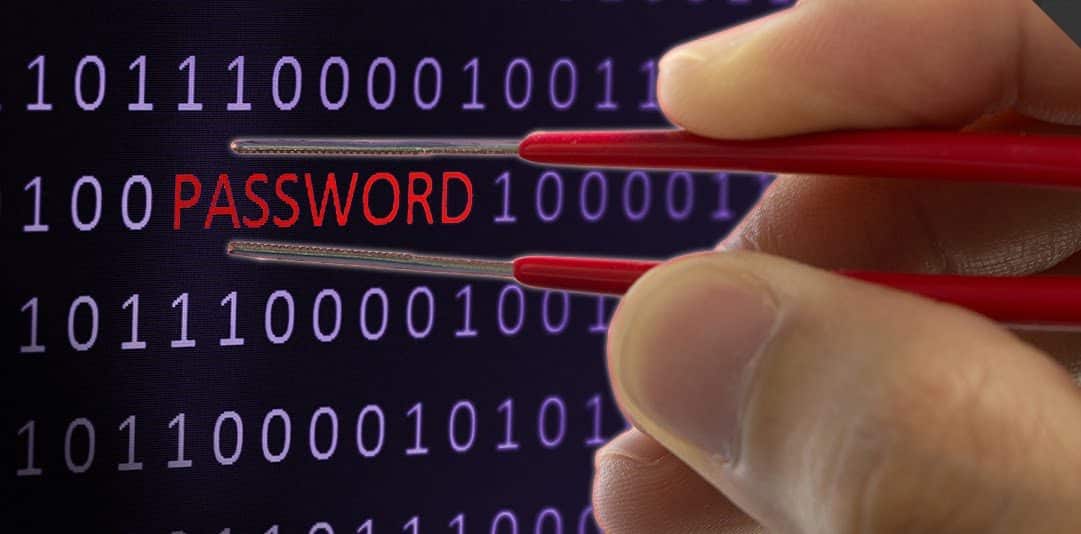
10) Use A Password Manager
The Password Manager is definitely a lifesaver. I highly recommend registering in the LastPass. The free version would allow you to operate with desktop passwords. Their 12$ subscription would allow you to get some premium options: family access and priority assistance, and that’s only the beginning!
Below you can find a list of advantages of LastPass, one of the best password managers:
- it allows you to get only 1 master password to login to all the websites you need
- it can create super complicated passwords for you;
- it can generate unique passwords for every website;
- if you need it, it can enable the autofill in the password section;
- the passwords they make are data encrypted (this implies that you are the only one who sees the passwords);
- it permits you to add two-factor authentication, which crucially improves your security (we will discuss the two-factor authentication later).
In case you still go for uncomplicated passwords, such as ‘Joe12071976’ or something like ‘ilovemymom’ – then you are risking your privacy. Rather use LastPass to generate complicated and unbreakable passwords, something like this“g`67$hd%l)#fG4%]80o”.
If you are a person who has a giant amount of sites and passwords, you definitely have to use a password manager. As for me, the LastPass tool is reliable in terms of protecting you and the data you have. Moreover, it enhances your online privacy from all of the damageable things. I promise that you’ll be safe. Just use a password manager.
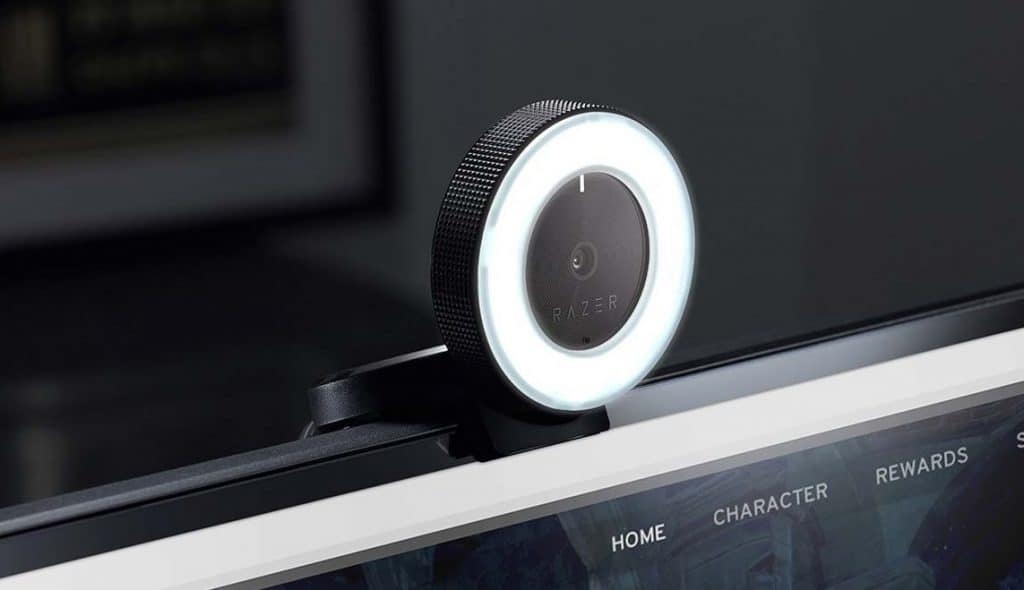
11) Check Your Devices for Online Betrayal
Does your device have a desktop Webcam in it, or do your mobile devices have a front camera? If your answer is yes, then you must know that they can use it to spy on you. This is definitely disgusting. I’d say, creepy. I mean, someone could be staring at you behind the Webcam right now and probably even record what they see.
Attackers can turn on your cameras and watch you live your private life. Here is a small piece of news about one such creepy case: let me give you an example from the news, where such a creep named Mihangos illegally attacked roughly 100 computers and watched the people behind the screen. In short, he was reading their mail, observed them through Webcams, and they, of course, didn’t know about it. The most shocking thing is that he found their nude photos made by themselves. The identity thief threatened that he would publish those images if the people behind the screen won’t provide even more private pics and videos for him or if they would call 911, following court documents.
To make matters worse, most of the criminal’s victims were underage girls. The total of his crime was unbelievably huge: at least fifteen thousand Webcam vids, nine hundred audios, roughly thirteen thousand screenshots. All in all, as the source tells, he has attacked more than 230 victims, including minors, and that is a HUGE data breach.
But to tell you the truth, this is a manageable issue, and no advanced software is needed to preserve your privacy from this intervention. You just have to obtain something to cover your camera. Or simply put a webcam sticker covering the camera when you are not using it – and here it is, problem resolved.

Check Your Online Browser
Web browser’s main function is to make money out of you. The search engine, a.k.a. you, is the product. The promoters are the clients. The money from advertising is received exactly through browsers as many people use them. And advertisers, in turn, evermore strive to obtain more information about you so that their advertising campaign would run great.
In this way, browsers are not safe in general, and they put your online privacy at risk. This is so bad. Thus you must start doing proactive action to preserve your confidentiality.
12) Don’t Click on Suspicious Links
Don’t click on every single thing you see. If the link in the Web browser you see appears to be sketchy or very colorful, then, believe me, it’s probably not safe. However, if you still need to snap on it – check it at first!
Just copy the link without clicking on it, then float the mouse’s pointer over the link, and the place where you go will be shown in the lower corner of your browser. Now, click with the right side of the mouse on the link to enter the pop-up menu. Then, copy the URL. Then, go to urlvoid.com. Insert the copied URL into the search tab. Snap-on the scan button and observe the results. Is this reliable? Well, not. But it is so much better than silly clicking on random links.
13) Get Rid of Ads
Nowadays, advertisements have changed so much from the old street billboards and advertisements. Most of the Ads are awful, and the online Ads on social media are even more annoying. They frequently pop-up while you are doing something online, and they appear without your permission. To resolve this problem, you should download an As blocking module, e.g., Adblock Plus, Disconnect, Privacy Badger, UBlock.
14) Attach HTTPS
The HTTPS inside the Web sites indicate that such sites encrypt the information that their site and your computer exchange. Sadly, this new standard is hard to perform and hence has not yet been widely adopted. One may determine if a site uses HTTPS if its web address starts with it, not like in the old ‘http’ example (actually, there should be no ‘s’ at the end, as ‘S’ is for secure). I understand that it is hard not to click on the sites that lack this new option, so my advice is to add an extension to preserve you. Just download this extension called HTTPS Everywhere from EFF. HTTPS Everywhere helps to make your connections encrypted in an HTTPS-type website. It is compatible with Chrome and Firefox.

15) Educate the Google or Get Rid of It
Everyone knows that Google is a huge search engine. Over 60% of U.S. searches are made solely in Google, so they basically occupy the market, as Google is considered to be the best out of all search engines. And when individuals get into the usage of Google, they continue to use it, disregarding the privacy settings.
So I present you with a couple of suggestions.
16) Take on the ‘Duck Duck Go.’
The greatest and surest way to preserve your Internet search history and information is not to use Google as a search engine. Alternatively, try the Duck Duck Go. I know that it has a funny-like name for a search engine, but they are the perfect way in terms of search privacy.
It is advantageable due to several reasons:
- it is an easy-to-use and spam-free search engine without sketchy content
- it does not record your location history
- it would be ineligible of tracking cookies
- it does not gather personal data
It is simply the perfect tool for all search engines. That’s it.
17) Limit the Google
If you are still using Google as a search engine, then you must limit their data collecting abilities, at least for your computer. To be honest, Google is such a great and powerful company, yet they still do not disregard privacy, but not by the initial privacy settings. You are the one who has to turn it off or restrict it.
All you have to do is to enter your profile and check what data you allow google to accumulate and how you plan to share it. To be more precise, check on the Personal Information and Privacy section to view your YouTube search history, for example, and many more things.
It is a great thing to remove your entire history (location history from Google maps as well) at once or one item at a time. You can do it in the location settings of your account. Make sure to limit Google from collecting any of your personal information in the future.
As We Would Like To Present You To Our Website, We Are Sharing The #78 Piece Full Survivalist Guide. Snap Right There To Obtain It For Free!
18) Things That You Wear Are Spying on You
We all know those fitness armbands that you wear on your hand, e.g., a Fitbit. The mechanism behind its work# is a Bluetooth connection to your smartphone. Nonetheless, Bluetooth is not safe. The data transferred via YouTube is so easy to get for even junior hackers. I speak about such data as usernames, passwords, GPS, and so forth. All of those things are personal and should not fall into the hands of some criminals. So, I would suggest you get rid of this technology and turn off your Bluetooth synchronization while you are outdoors. When you are at home again, simply turn it on. The key idea behind it is that data that is not distributed cannot be stolen from the air.
Yay, we have tackled this issue! Another advantage of such a method is that it will save both the battery of your phone and armband/Bluetooth headphones.
19) Get Rid of Google
Of course, if you want to be EXTRA secure, then you can drop your Google account, but this option cannot be canceled. So if you want to do it – get ready for it.
Here are a few simple steps on how to perform it and get rid of such search engine:
- Step 1: Log In to your account;
- Step 2: Look for the ‘cancel my account’ button;
- Step 3: Get prepared, breathe;
- Step 4: Stick to the instructions.
I emphasize it. You will erase the entirety of your Google account data (emails, history, G+ data, and so forth) by doing such a thing. So prepare everything in advance, get ready, and if you finally want it – do it.
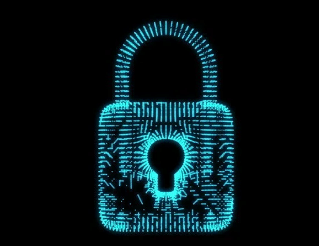
Protect Yourself From Those Who Want Your Money
Ransomware is a hot topic that is still persistent in our life nowadays due to the fact that hackers receive enormous amounts of money by threatening innocent individuals with their own data.
They work just like this, following some easy steps:
- a hacker steals someone’s data or takes control of their computer;
- then they reach the victim and request money to save the data from being eradicated from the computer or published without consent.
Hackers pay extra attention to the data you don’t want to lose, e.g., working files or the data you would like to share, and I guess you know what I mean… anyway, they could do anything to blackmail you and grab your money… or something else.
That’s creepy. And it’s terrifying as it now happens more and more frequently. Some sources wrote that such hackers attack nearly 33 thousand devices per month.
This is a huge disaster for hundreds of thousands of people every year, as the number of attacks and the number of dollars demanded from individuals is growing rapidly. Anyone can get damaged by such a crime, even you or your family – it is just a matter of time.
What is more, did you pay attention that I wrote the dollars above? That’s for a reason: usually, ransomware hackers require cash in an online cryptocurrency named Bitcoin.
By the way, I have a buddy whose dad’s personal information was taken hostage by a ransomware program. And if you don’t want to be a victim too, you just need to:
- Back-Up the data;
- Update the software;
- Enable data encryption.
20) Update the Software
Make all of your devices, PC, and phone update automatically. It will reduce any chances of getting unneeded loopholes in the security software. Once the new security update is released, you will get it as soon as possible. Actually, make sure that all of your devices are able to update automatically.
21) Back-Up the Data
Utilize a storing method that automatically backs up all your valuable files and data. Employing this technology, even if some ransomware comes for you, you would be able to retrieve your data without spending money and being blackmailed. To help you to prepare, I present you with an extended backup guide. You will have three choices to back-up all of your files bootable, external, or cloud, as stated in the guide.
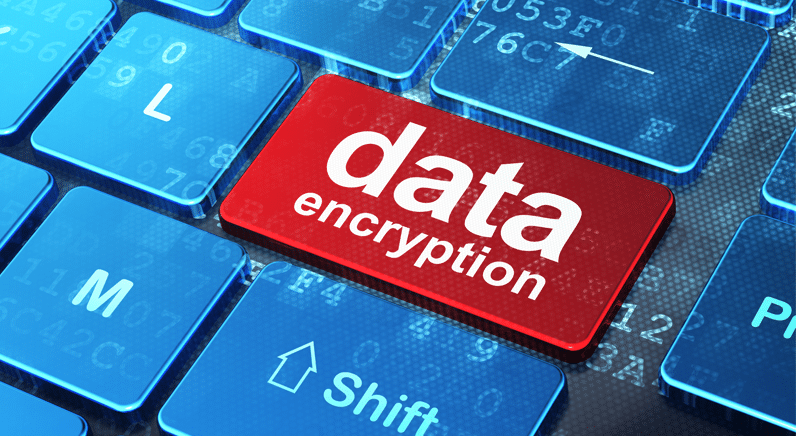
Enable Data Encryption
Encryption is a vital thing, and almost every person uses it on a daily basis. However, not everyone understands what encryption is.
In short, encryption is the method of mixing up data from the one who sends it to the one who receives it. In case you see the mixed-up encrypted data during data transfer, it will make no sense to you, except if you have an encryption key that decrypts the data.
Let me provide you with an example: imagine a scenario in which there are 3 people in the room, and only 2 of them know the Morse code. Two people who understand the Morse code start tapping back and forth, showing emotions, etc. That’s because they know the key. However, the 3rd character knows nothing. The transferred data (long and short taps) is encrypted (or coded) for the 3rd character. In this way, encryption mixes up your digital data, making it unreadable to individuals who are not allowed to access it.
As for everyday life, if we didn’t have encryption, online shopping wouldn’t be possible as you would share your credit card data with everyone on the Web.
As We Would Like To Present You To Our Website, We Are Sharing The #78 Piece Full Survivalist Guide. Snap Right There To Obtain It For Free!
22) Computer Encryption
There are several options: you can encrypt the entire hard drive of your computer or only certain files you want to preserve. Encryption enabling process differs from device to device on different platforms such as Mac, and as well depends on the version of the operating system.
Snap here to read an article on how to protect your privacy and encrypt your computer’s hard drive system.
23) Smartphone Encryption
In fact, your phone knows almost everything about you. And with GPS, it also knows your location history, in case you carry your phone with you. It has data about your phone calls, mail, search history, and so forth. On the other hand, I should mention that most of the new models of mobile devices as well have encryption. The only thing left to do is finding how to enable it. Enter the ‘privacy settings’ menu in your smartphone and find a security option (each phone has different tabs, so take your time and find it). Then find the encryption option and stick to instructions to be sure of your privacy.
24) Cloud Data Encryption
Many people are bothered by storing their data in the cloud. And that’s fair enough: despite being a convenient device, it also makes you more vulnerable. Basically, you’re letting your data being stored someplace on a remote server.
Nevertheless, for some people, the comfort and easy usability are worth the risk. For instance, the cloud makes it easy to transmit photos and videos, so some small businesses or distant families can take advantage of it.
Once you choose the cloud data method, you should:
- Not upload very personal data;
- Encrypt the cloud.
For example, Dropbox is a famous system that provides data encryption in the cloud. I’m sure there are other options, but still, the main thing is to enable encryption if it’s not already by default settings. One must as well pick only a cloud storing system corporation that has two-factor authentication.
25) USB Drives Encryption
USB flash drives frequently appear to be lost, so you wouldn’t want to unintentionally leave it somewhere as any stranger could grab it and obtain your data. In order to not to get stuck in such a situation, one must buy an Apricorn flash drive that has built-in encryption. They are a bit expensive but think of them as single fee insurance to protect your privacy.
26) Two-Factor Online Authentication
The cloud storage system is surely useful, but it doesn’t always implement data encryption.
But what about two-factor authentication? I would say like this: either you must have it, either you must not use the cloud at all. Almost all cloud storing corporations promote their own data encryption methods. You can easily protect your privacy and crucially lower the risk of hacker attack if you have solid protected passwords and two-factor authentication.
So what is it, the latter one? To put it in a nutshell, this is the 2nd form of proof of who you are:
- The 1st step is your password. As we already learned, passwords may be stolen, particularly if they are simple and short. And by simply adding the authentication, you drastically lower the chances that your account will be at risk;
- When you have enabled the 2nd step, the identity thief has to, first of all, get to your complicated password and then have your 2nd authentication code. And trust me – it would be so hard that the hacker wouldn’t want to go through all of this.
Two-factor authentication is conducted through SMS text with a code that is sent to your phone number or through some app that makes unique codes each minute. Sometimes it may offer to answer some security questions that you set in advance.
However, there is a drawback, when you turn on the two-factor authentication in the accounts you use, you will log in normally, and then, instead of having fast access to the things you need, you’ll have to enter a unique password sent by an app. As I already mentioned, this password code would appear by an SMS text that would be sent to your phone number. Then one writes out this unique, time-restricted code and has access to any needed account of theirs.
Yes, probably it’s a pain in the ass, but trust me, it is worth it. Your most suitable privacy option is to either not use a cloud system at all or utilize it solely for files that you are not ashamed or afraid could be seen by the masses. So, let’s move to the next topic.
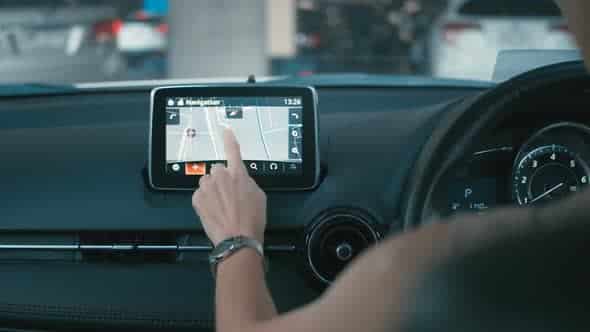
Do Not Overshare
27) The GPS Tracking System
Most apps on your smartphone, particularly famous ones, e.g., Instagram, and other social media, get all of your GPS data by initial settings that allow tracking your location and that actually save your location history. Moreover, in some apps, one may even get rid of this function – do it if you can and change the location settings. And in case you are not able to eliminate this function, then I would advise just delete the app from the smartphone. As another option, you could turn off the GPS navigator in your smartphone in location settings and turn it on only when you need to find the route to someplace. I mean, no one needs to know where I have been or where I am going – that is for sure!
28) Become a Ghost Online
We have all been stuck in a situation when our old friends that we are trying to forget invade into our life by searching our FB account and writing ‘hello!’. So the most evident option to get rid of this is to hide your account.
The thing is that you have the choice either to be seen by others in the Facebook search results or not. This function can be modified in the settings. Go to the section ‘Who can find me?’ and see. And as we already know, be the default privacy settings. Everyone will see you on the search list. So, one has to be proactive and turn off this feature.
29) Enable the Log In Approvals
Approvals, while you log in to your Facebook account, is a kind of two-factor authentication. This implies that even in case some person tries to steal your password of some social media, they will also have to enter a unique code to log in to the account. And this is less likely to happen, as 2-step authentication is really safe. Hence, I would suggest turning on the ‘confirm Log In’ to preserve your Facebook account. This feature can be found in the settings of your Facebook account.
As We Would Like To Present You To Our Website, We Are Sharing The #78 Piece Full Survivalist Guide. Snap Right There To Obtain It For Free!
Protect Your Privacy Online While Using Public WiFi
When you go to Starbucks, you would frequently use their free WiFi, won’t you? You must just connect to the network, accept the terms and start going through the Web. However, once you connected to it, you will never get disconnected: whenever it is within your reach, it will connect to you automatically in the future. Ouch. This is bad.
Why? Imagine a case in which a hacker makes a public Wi-Fi network that looks like the official Starbucks network? I mean, the official coffee shop connection would be like ‘Starbucks Google,’ and the hacker created a fake one called “Google With Starbucks.” And surely, you do not have the knowledge about which of them is secure, and you join to the wrong one, and here you are – hacked. You can resolve this problem manually. Just ask the staff from Starbucks (or any other corporation that you join the WiFi network in) the name of the correct network. Moreover, set the WiFi privacy settings never to let any of your mobile devices automatically join a free WiFi. Similarly, never manage the private business on free WiFi networks, e.g., don’t go into your online bank accounts or do not enter any private information while buying something in App Store. Also, for your privacy and security purposes, try not to log in to any of your social networks or social media profiles. Make sure not to insert your address and phone number or social security number anywhere.
30) Turn on the PCs Firewall Software
Your computer’s firewall serves as the first step of security for your computer. It has to stop outer PCs from joining yours without approval automatically. I mean, you would never leave your door open for any stranger to come into your home. So, I suggest going to the PC’s settings and checking that the Firewall is enabled.
31) Utilize The Automatic Options
Any time you want to join a free WiFi network, make sure that you label it as such. There are several options. You can assign any network you join to as “home” or “public,” and if you mix up a home with a public one, then you will be in a disaster. In case you assign it as “public,” your operating system will forget the network right after you log out. If you have such a device as a PC – definitely do it. These conditions and options are intended for this very device. If you use a Mac, try having a go with the free ControlPlane app.
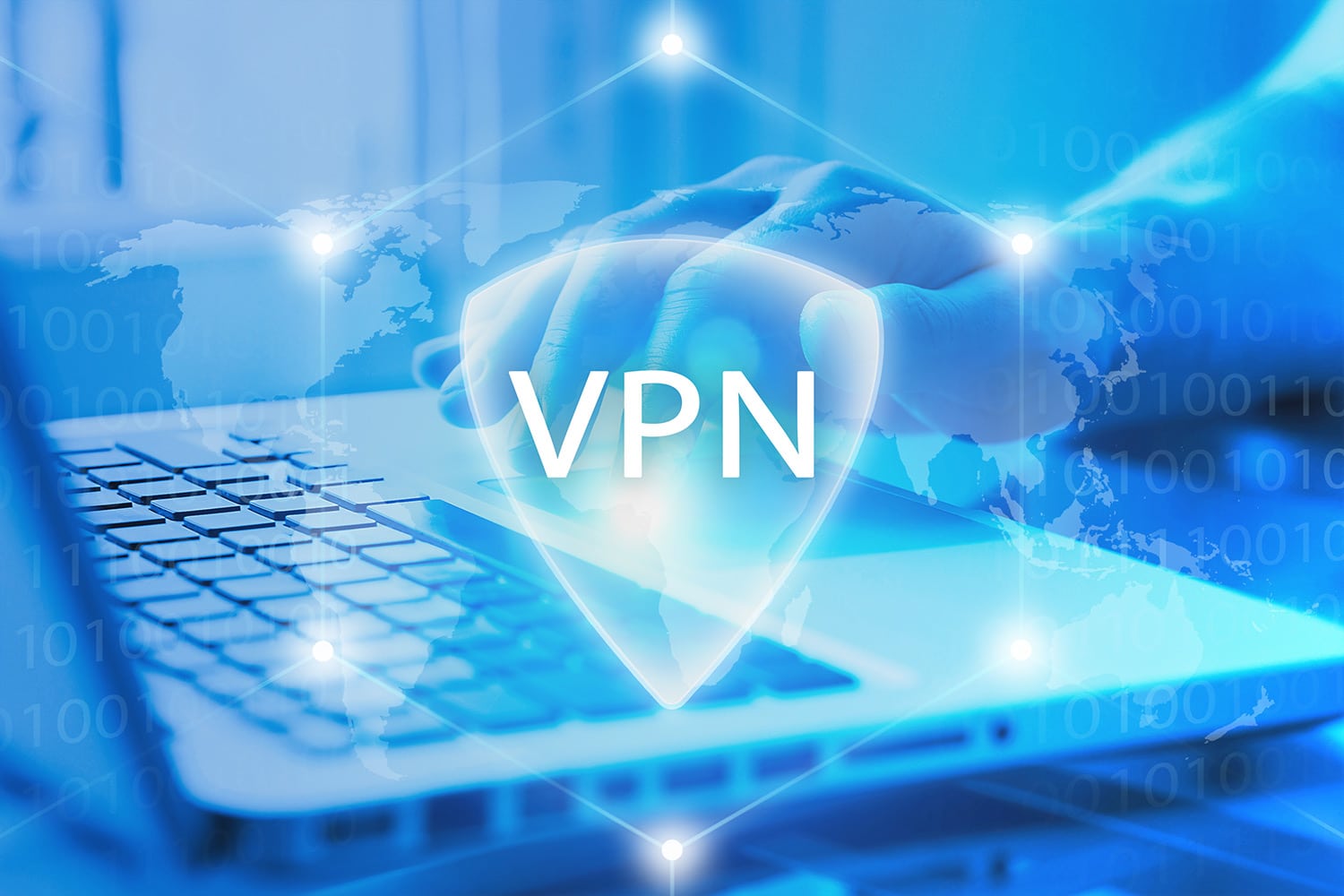
32) Hide the PC
When you have turned on the firewall, go one step ahead and hide your PC to increase the privacy level drastically. The criminals can’t hurt you if they don’t find you. So, go to the advanced sharing settings on your device and enable the feature. If you use a Mac, you can start working with a hidden mode in the firewall privacy settings.
33) Turn on the VPN
While you are surfing through online pages in public or at home, the most crucial step, as for me, is protecting your privacy. For example, if you turn on the Incognito mode on your computer, Windows will not be tracking your Web browser history, and that’s it. I mean, you are still vulnerable as your computer’s IP address still was tracked, and anyone could know where you were in the Network.
What can you do? Utilize A Virtual Private Network – VPN. It is a simple and efficient tool for online privacy and security. A Virtual Private Network serves as a tool so that your internet connection would go through a remote server. This results in all of your online actions not being bound to your device!
Let me show you a schema:
- No VPN: Computer -> Surfing the Web
- With A VPN: Computer -> Remote Server -> Surfing the Web
All devices have an internet protocol address, and it is unique for each of them. For example, when you go scrolling through some Webpage, you are actually leaving the internet protocol address of your computer on this Website. Nonetheless, in case you surf with a turned-on VPN, you won’t share your IP address with everyone. You will share the address of the VPN you choose.
Moreover, as the VPN’s address is not bound with your internet protocol address, it allows you to go through the Internet being unknown! Brilliant!
If you don’t have a VPN – anyone who knows something about technical things would be able to see what Webpages do you visit and how often do you do it. But with a VPN, your privacy and security are protected. The VPN would not be tracking the location from which you surf the Web, and that is a big advantage.
Sadly, if you use a free VPN, you may guess that it might be wicked. It may be too old or even unsafe. That is why I would suggest you go for a Hide My Ass. The corporation was created at the beginning of the 21st century. They have 1000s of remote servers, and they also encrypt all the information. I have started using it in 2012, and I am still completely grateful for it. So, you should spend some money to help to protect your privacy online. Never go surfing the Web without the VPN, never.
34) Make Sure to Lock Your Smartphone and Set a Password
Remember to ALWAYS lock your smartphone, either with a four digits password or anything. The FCC concludes that roughly 1 million cellphones are stolen per year. And if you a regular American person, you probably have a giant amount of delicate and personal information stored on your smartphone. Moreover, your apps are set to keep you logged in automatically. This happens very frequently, just out of convenience. So, having a single tap, anyone could obtain complete access to your private accounts (they would not even need to enter login and password, as you are already logged in). That is the standard setup for Facebook, Twitter, and some other social media.
Of course, you are not satisfied with the fact that any criminal could have unrestricted access to these accounts, right?
So, the best approach to solve this problem is making a pin-code or finger-movement code that is both complexes. But again, do not choose something straightforward. For example, common codes like 1111 and 1234 won’t serve.
Now I would probably shock you: in their latest study about the pin codes, datagenetics.com revealed that the most POPULAR password among all is… 1234! That’s unbelievable… almost 3.4 million people have it, which is 11% of the surveyed individuals!
Therefore, in case your PIN combination is effortless, change it. A danger foreseen is a danger avoided. Choose something random for your PIN. Maybe go for a 6 digits code, if possible.
Phone burglars will first try to type in all of the common combinations, and if your code is simple, they would easily unlock your phone. But if your code is pretty complicated, then they would be unable to do any harm to you.
Screen Time Out
Actually, the PIN is totally ineffective if you have a very large timeout on your screen; however, you can still modify the default settings by following some simple steps. One may pick anything like ‘instant timeout’ to ‘never timeout.’ Remember the short – the better. I would go for a 30 seconds timeout for the best security.
Of course, it’s pretty bothersome to run out of a timeout in the midst of reading news, but it will stop a criminal from accessing your telephone information for hours. Moreover, in case your cellphone is by default screen locked in less than 1 minute, then the possibility that a criminal will be struggling to gain access to your data is rising, so your privacy levels would be increased.
Online Mail Protection
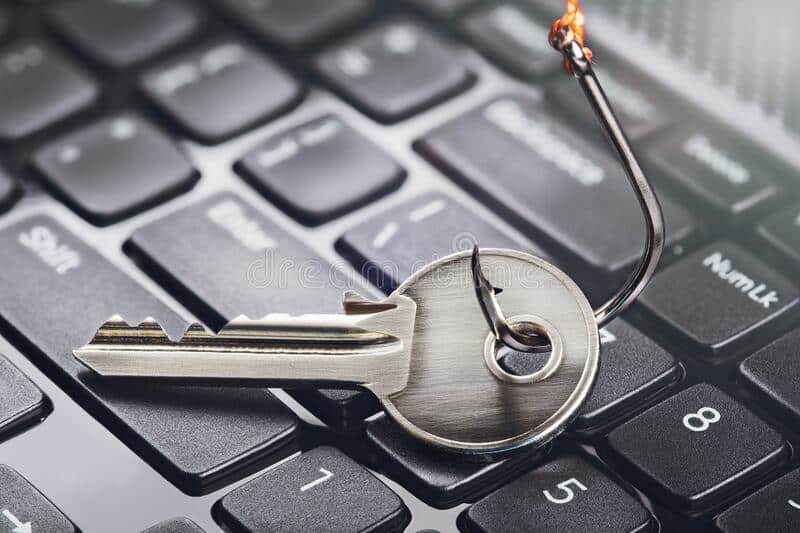
35) Be Suspicious About Any Emails
Currently, most national corporations wouldn’t require you to snap on links in emails to refresh your passwords. And in case you are ever in doubt, you may, as usual, open a new browser section and enter the presented URL without the need to snap on the link. I mean, links can be named as one thing but do as another. Or, for example, they could simply redirect to some other place that could bring you viruses. So always be aware of what do you click.
36) Try to Get Rid of The Phishing Nets
Apparently, you already know what does phishing means: those are the real-sounding emails that you receive. Those emails are trying to get you to snap a link and distribute some information about you.
Sometimes those messages look real. For example, they could pretend that they have been sent by some organization, and they are simply asking you to update the password. But in reality, they ask to change your password in order to phish you. And if you were too naive and changed the password, then they can easily log in to your accounts.
The most obvious way to protect yourself from the before-mentioned attacks is to use two-factor authentication. This stops any person from accessing your accounts if they solely have only your password. They will also need the 2nd factor (make sure to get acquainted with the previous part of the article on the two-factor authentication).
37) Call Them on the Phone
Besides, one of the most helpful ways to avoid these new-aged scammers is to break the rules of their game. Just grab your telephone and call the company, ask them about the message you got. This will determine if the message you have received was real or not.
38) See Who Risks Your Privacy
It is so annoying to receive messages by email from some random spamming sites. Doesn’t it upset you that you have no idea which organization shared your data with third parties? Well, you could start with this smart method to find out who did originally shared the mail and who betrayed you…
In case you have a Gmail account, type ‘+ “website name”‘ before the@gmail.com. For instance, if your Gmail address was itisme@gmail.com and you joined the Company WASD, you should write something like itisme+WASD@gmail.com. From this point, all of the messages from the Company WASD will still be sent to your personal email address yet will presently include some extra information. Thus, if you ever encounter some spam message from some random organization you have never seen, you’ll know who exactly risked your privacy and security.
39) Utilize the 10-Minute Email
Sometimes you need to enter your email in order to get into some website, sign up for a loyalty card, or get a letter via email. But what to do if you simply need a one-time co-operation and don’t really want to share your actual email address?
Rather you can use the thing called ‘www.10minnutemail.com’.
This service will allow you to generate an email address that you will be able to use only for 10 minutes (or 20 if you want). When the time is over, the email address is erased from the system. Additionally, ’10minutemail’ does not store any private data. However, you need to acknowledge that all of the later messages that you have assigned to come to this very email will disappear. In this way, I suggest using such a schema only with some corporations that are not reliable, as you wouldn’t like to miss some real messages from a valid company.
As We Would Like To Present You To Our Website, We Are Sharing The #78 Piece Full Survivalist Guide. Snap Right There To Obtain It For Free!
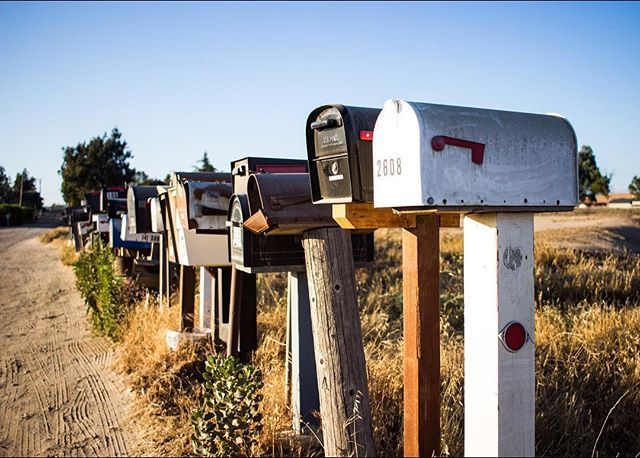
40) Ignore the Undesired Credit Card Offers
Believe me. You will not miss anything. Credit card offers would never send you these offers to save your money. They send these undesired messages due to the fact that they make a huge amount of money at your expense. Moreover, they endanger your privacy online and may cause identity theft. Those offers they make can easily be stolen, written out by some identity thief. Then they would make the actual credit cards sent to their address. The only thing left to do for them is to activate them and quickly gather your money before you see it.
I understand that situation is not that common, but it messes with your privacy so much. To solve this problem, you could put a stop to several of these undesired offers by visiting the website ‘optoutprescreen.com‘ or calling 888-567-8688. This corporation is connected with the Consumer Credit Reporting Industry.
My key point is that if you ever feel like you need more credit, then shop online based only on your decisions. You don’t need those unsolicited offers appearing in the mail.
41) Delete the Private Snail Mail Files
Rummaging through trash boxes or stealing from a mailbox is an old way for hackers and criminals to obtain private information. Too many corporations send out undesirable suggestions by mail. Not only is it disturbing to get those messages, but those companies also often put sensitive private information in their offers (I am talking about the Credit Card companies). And you have to be active and destroy those files before they would be placed in your trash can. I present you with a list of snail mail files that you must make sure to eradicate:
- The social security number. Social security number is a 9-digit unique code for all residents of the US;
- The date of birth;
- Credit card numbers. I guess it is evident with credit card numbers, as they might be stolen, and you do not want to be a victim of identity theft;
- Phone number. You do not want anyone to message you with unneeded offers;
- Health Insurance Account Numbers.
But destroying everything you’re going to throw away is fine, too. I stick to the thought: if I’m in doubt – I’d better destroy. You could also buy a proper paper shredder.
42) Get Less Mail-In General
But there are a lot of such undesired offers, right? Actually, you can lower their amount by merely 80%! Just use the ‘dmachoice.org.’ I highly suggest you click on their ‘Learn More’ page first to understand how things are done.

Cybersecurity and Privacy Action Plan
Most likely, you were so engaged in reading this article about privacy online that you forgot actually to do something.
This is fine because it’s your reminder to go back to the beginning and gradually go through all the sections of the article. Well, except if you want to kick yourself later for only completing half of the work. Information that is not used… is useless. Your private data will thank you.
FAQ
How to protect your privacy online?
There is a ton of ways to protect your personal information. Your internet privacy could be protected via two-factor authentication. Use it for your social media profiles and basically any social network, and later, you will not be stuck with any data breaches.
You could also start by changing the privacy settings in the browser, deleting some web browsers, or getting some new browser extensions. I personally recommend using a password manager to get unique passwords.
Public Wi-Fi: A security risk?
The largest threat to the safety of public WiFi is that hackers can get between you and the WiFi network connection point. And data on this type of open connection is usually not encrypted, which makes you very vulnerable to such kinds of attacks. Moreover, hackers frequently utilize open networks to spread viruses.
Which VPN should I use?
A Virtual Private Network – VPN – is an essential thing, and it must be quick and protected. A VPN should give you some privacy online from the Web service provider and at the same time reduce tracking of your I.P. Some people recommend choosing OpenVPN as this is the greatest VPN provider nowadays. It is super useful, fast, and adaptable for any device, even mobile devices. It works on such technologies as the OpenSSL encryption library, and, in this way, it is really safe.
How to reduce online footprint?
Here are 10 simple steps on how to lower the percentage of your online footprint and be more secure:
Step 1: Use a password manager;
Step 2: Have a reliable search engine that provides privacy online. Go only for such search engines that would not be tracking your location history. Moreover, use browser extensions; you can install browser extensions for any of the search engines you would like. Do not accept to use cookies in web browsers;
Step 4: Do not leave your phone number, location, social networks, and social media profiles anywhere on the sites. Log out of your social media when you leave the app;
Step 5: Keep your address and phone number safe;
Step 6: Make sure not to share your credit card number with anyone;
Step 7: Use a four digits PIN code for your mobile devices. A four digits password would protect your privacy and personal information on the smartphone;
Step 8: Get some antivirus software. Antivirus software will preserve you from viruses such as CryptoLocker, Nimda, Tinba, etc.
Step 9: Do not leave your date of birth, marital status, or social security number anywhere. Even the last 4-digits of the social security number, if they leak somewhere, may cause a huge disaster for you;
Step 10: Forbid the GPS from tracking your location. You can do it in the location settings of your device;
How to use a password manager?
A password manager is a tool that would protect your privacy and security. In short, you could install it via downloading from App Store, for example, if you want to use it on your mobile device. You can also use a password manager from your PC. Just either buy a subscription or get a free version somewhere. It is advantageous because password managers could generate one or several unique passwords for any social network or various sites for all of your devices. The password managers as well allow you to have an autofill for all of your accounts when you log in to social media.


